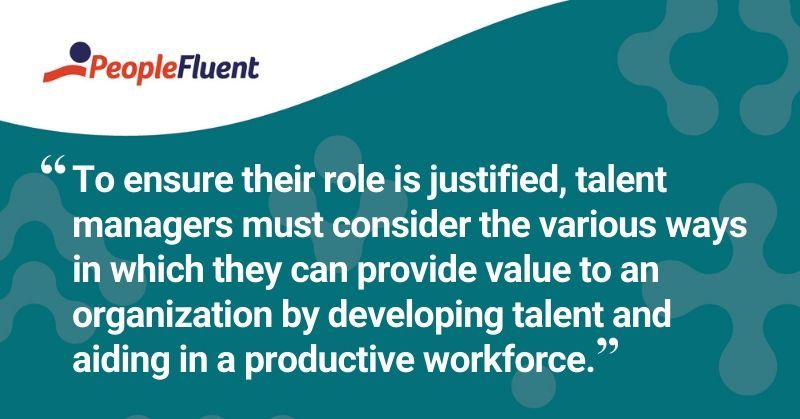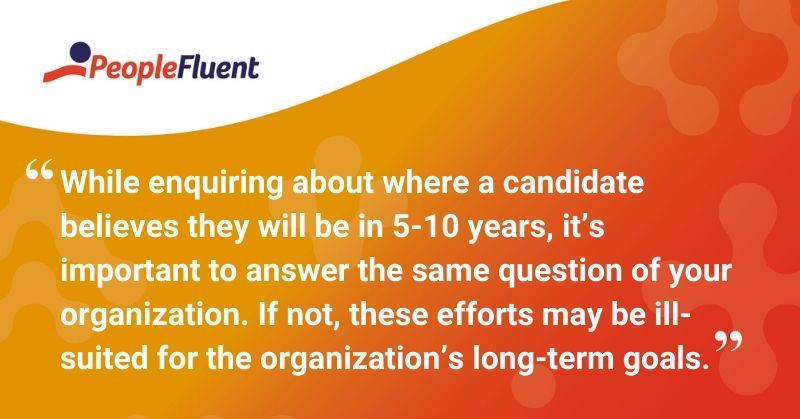Published: May 12, 2020Time to read: 5mins Category: Talent Management
Talent Managers: An Advocate for Employees
To effectively lead, talent managers need to understand and own the importance of guiding and developing employees throughout the employee life cycle. Through experience, data analysis, and a clear understanding of roles and responsibilities, great talent managers should have the ability to see talent before others do. Not only can this foresight help drive quality employee productivity, but also establish a talent pipeline for succession opportunities.
Becoming a great talent manager is not always easy. As an employee advocate, talent managers campaign for resources, performance evaluations, compensation, as well as the necessary training and learning needed to succeed. Elevating their people while being an impactful part of the organizational and talent processes can help drive business outcomes and create a productive workforce.
Ultimately, talent managers should consistently go to bat for their people when it comes to talent management and talent acquisition functions. This blog will discuss the required skills, tools, and knowledge required for great talent managers to drive a successful talent strategy.
What Does a Talent Manager Do?
Before diving into the details of how to become a great talent manager, it’s important to examine what a talent manager does. Talent managers are a critical part of an HR team, tasked with providing the full scope of a talent management process—from attracting and developing talent to motivating and retaining high-performers.
To ensure their role is justified, talent managers must consider the various ways in which they can provide value to an organization by developing talent and aiding in a productive workforce. On an individual level, talent managers help employees progress throughout their careers and find new opportunities to consistently develop them for future roles. Next, we’ve outlined a few ways talent managers can be an advocate for employees.
More from the blog: 'Retooling Talent Management: How HR Teams Can Engineer a New Era of Productivity'

Own the Talent Development Process
Whether an employee has recently joined your organization, or they’ve been in a role for years, great talent managers should always be on the lookout for new opportunities that can add depth to their employees’ experience. One way for talent managers to do so is by leveraging everyday processes, or on-the-job experiences. This means identifying projects or tasks that go beyond an employee’s traditional job functions and can aid employee development for future roles.
Furthermore, identifying specific competencies that an employee may not yet have experience in is another opportunity for growth and upward mobility within the organization. For example, roping an employee in to assist with a key project that may require their expertise can be both a confidence booster and a learning experience. Encouraging employees to collaborate with each other across teams can also expose junior employees to different functions of the business.
When considering development opportunities, be thoughtful about how certain projects are identified and who is tasked with them. Reserving assignments for the specific purpose of employee development gives talent managers ownership of the talent development process and ensures that these tasks are going to the right individuals without overwhelming them or creating unnecessary challenges.
To solidify the point above, owning the talent development process allows talent managers to look beyond their immediate teams and take their wider talent needs into consideration. This includes developing successors who may one day take on the talent manager’s role, or other senior roles within the business. Investing time and energy into developing your organization’s future leaders is another feather in your cap, of course, but it can also lead to higher employee retention. Additionally, promoting internal candidates will incentivize your teams to reach a higher potential, leading to a greater level of employee engagement.

You should also read: 'Drive Your Talent Strategy, Not Your System'
Be Proactive
When considering talent needs, many leaders know what they’re looking for but fewer will look ahead to figure out if a new hire possesses the right skills. That’s to say, do the new hire’s competencies align with the team’s future strategy? While enquiring about where a candidate believes they will be in 5-10 years, it’s important to answer the same question of your organization. If not, these efforts may be ill-suited for the organization’s long-term goals.
Being a proactive talent manager means focusing your time and effort on hiring someone who has the proper abilities and expertise to move your organization forward. As well, you should consider a potential employee’s career goals before and during the decision making process. This foresight will help avoid any negative impact to your team’s ability to function along with avoiding a bad experience for candidates and employees alike.
Identify and Leverage Data Points
Without the proper data, decisions are bound to be made subjectively or reactively. Perhaps a team is understaffed, and as a result, a manager hires a candidate whose talent isn’t aligned with the organizational goals, or they hire someone whose performance begins to wane after onboarding. That’s why having the ability to test outcomes based on data is critical. A few data points that talent managers can use to gauge an employee or candidate’s ability to perform their role are as follows:
- Outline clear performance goals that can be evaluated using data analysis, by a talent manager or another member of the team.
- Leverage pre-boarding analytics to ensure your candidate is capable and knowledgeable in their field of expertise.
- Gather analytics from learning professionals who work with your employees to identify gaps in training or other areas in which the employee may struggle.
- Provide constant feedback and have an open line of communication with employees throughout their first 90 days. Early performance reviews can also identify areas where the employee may be lacking and needs additional support.
Interested in becoming a talent manager who consistently and effectively leads teams to greatness? Contact the PeopleFluent sales team today to find out how.
Discover How Performance Software Helps Build a Culture of Support
Guide people on a path of continuous improvement, excellence, and achievement. PeopleFluent helps you support your people, so they exceed their goals and drive business outcomes.